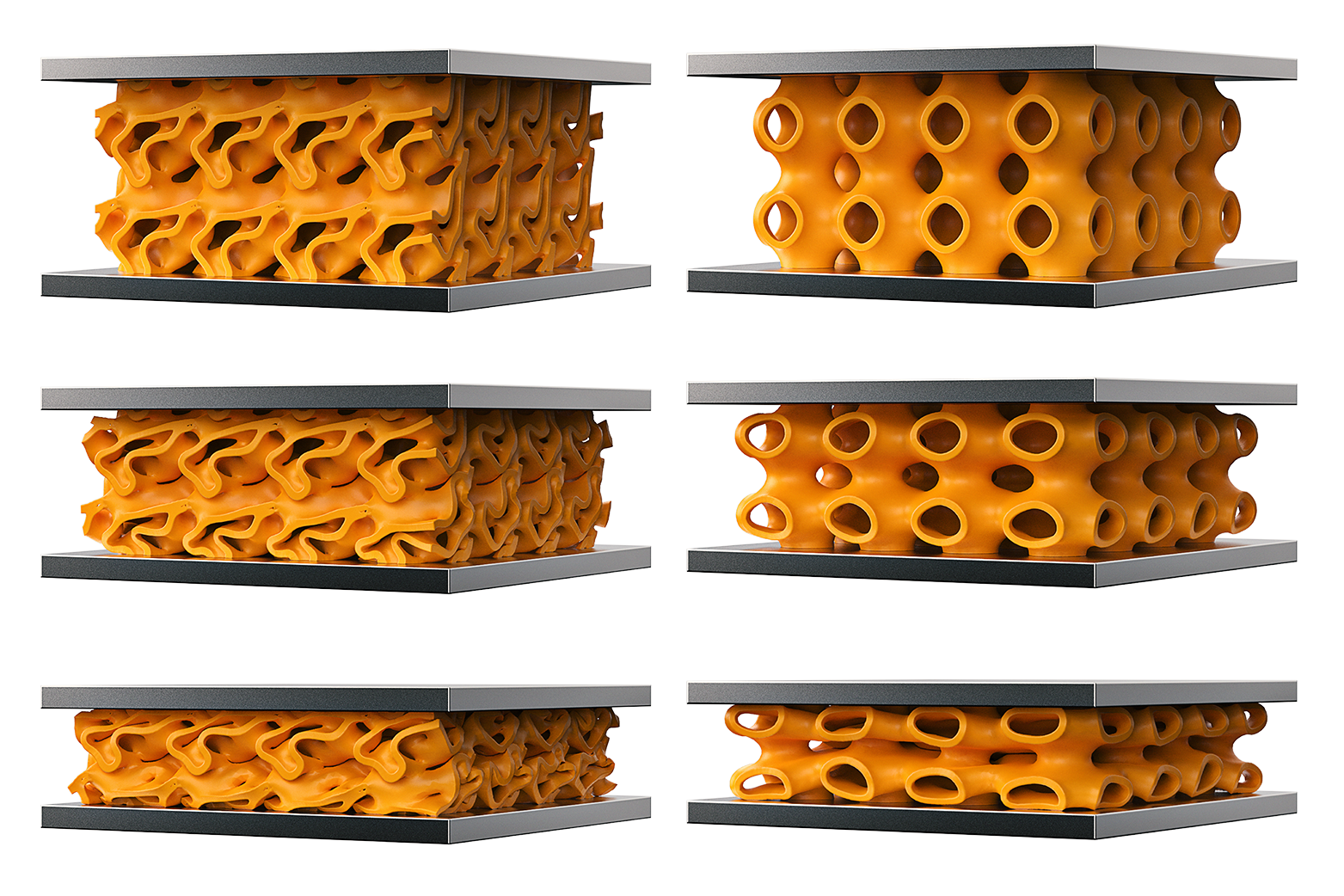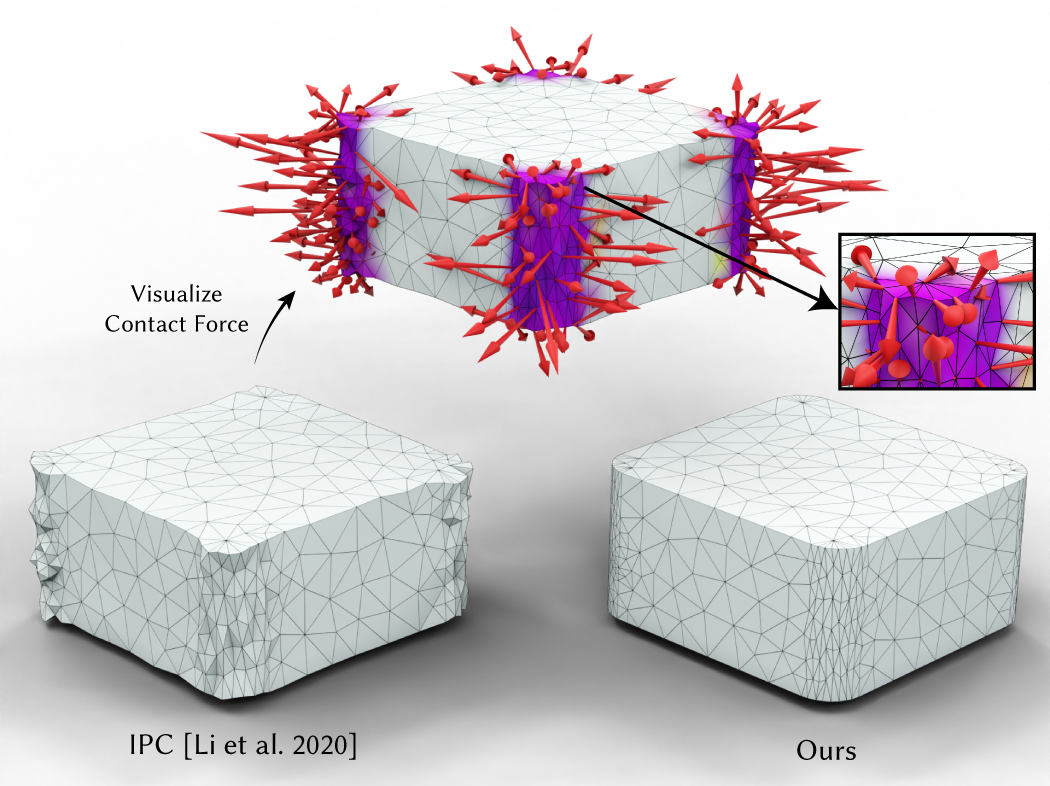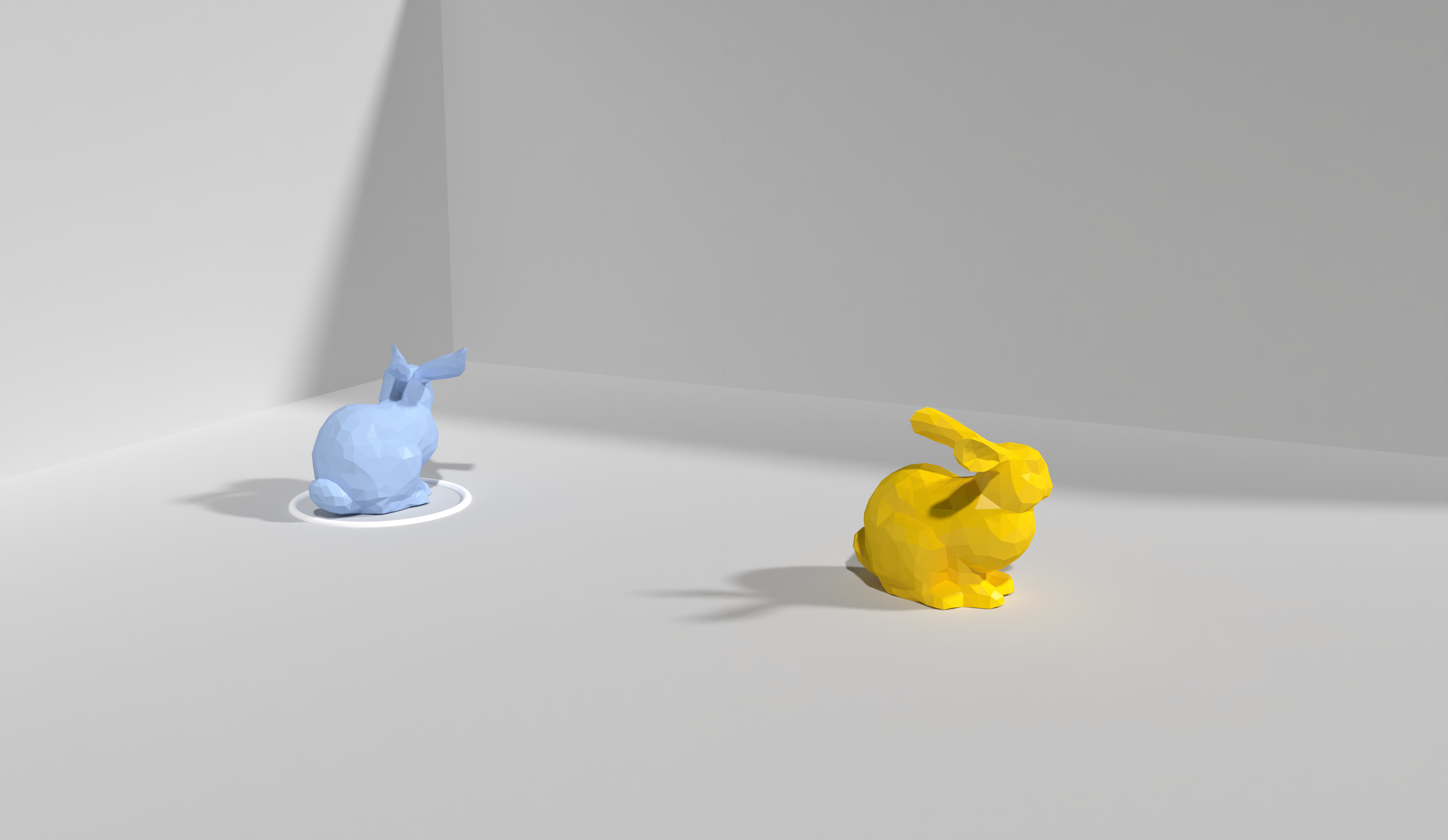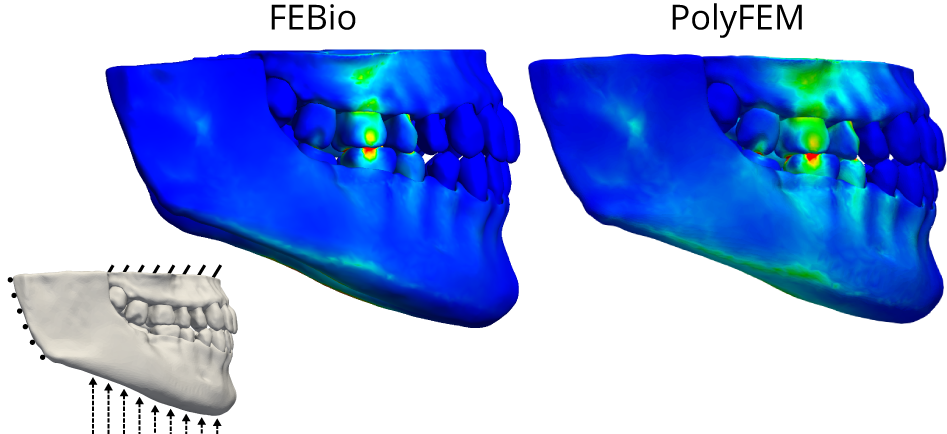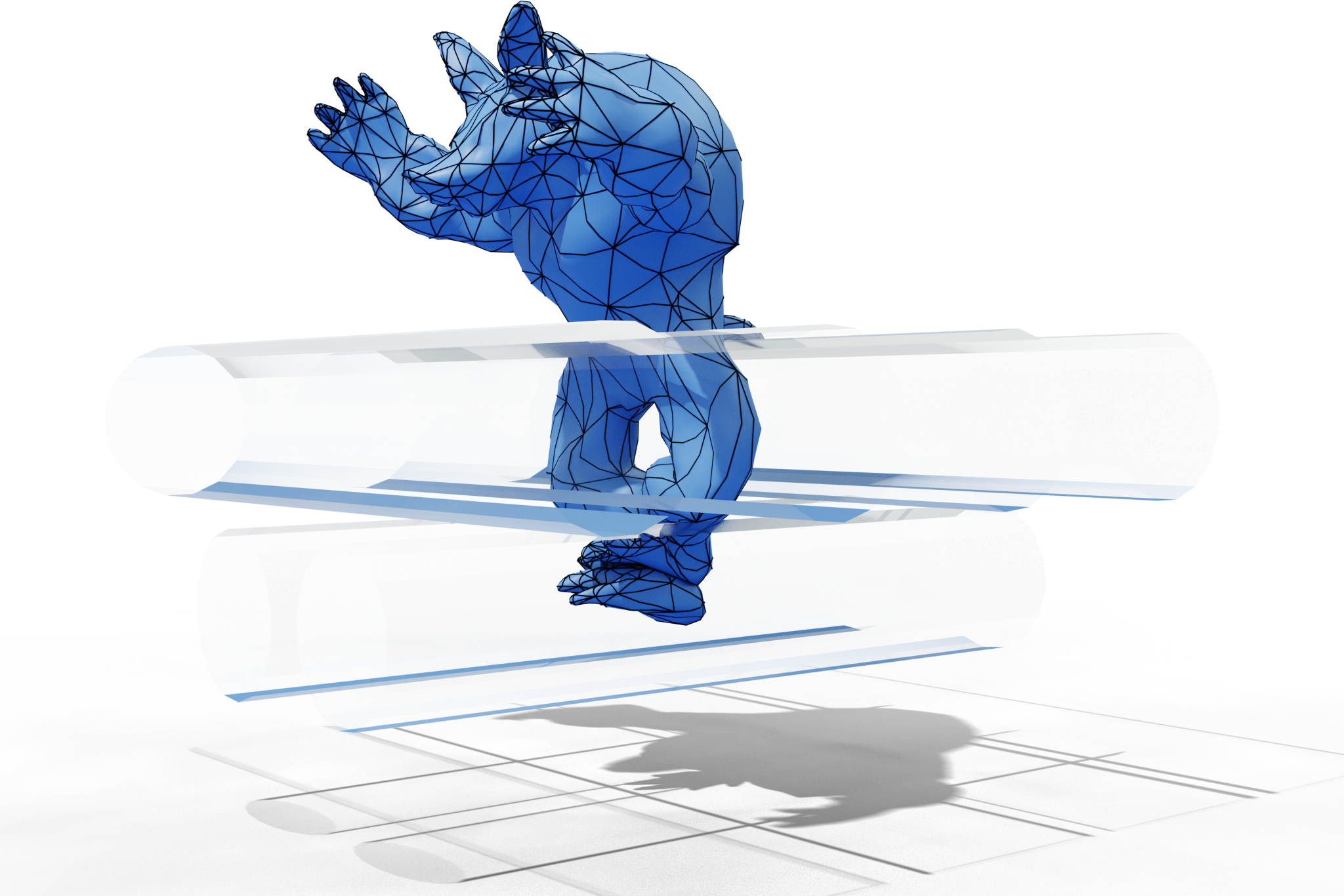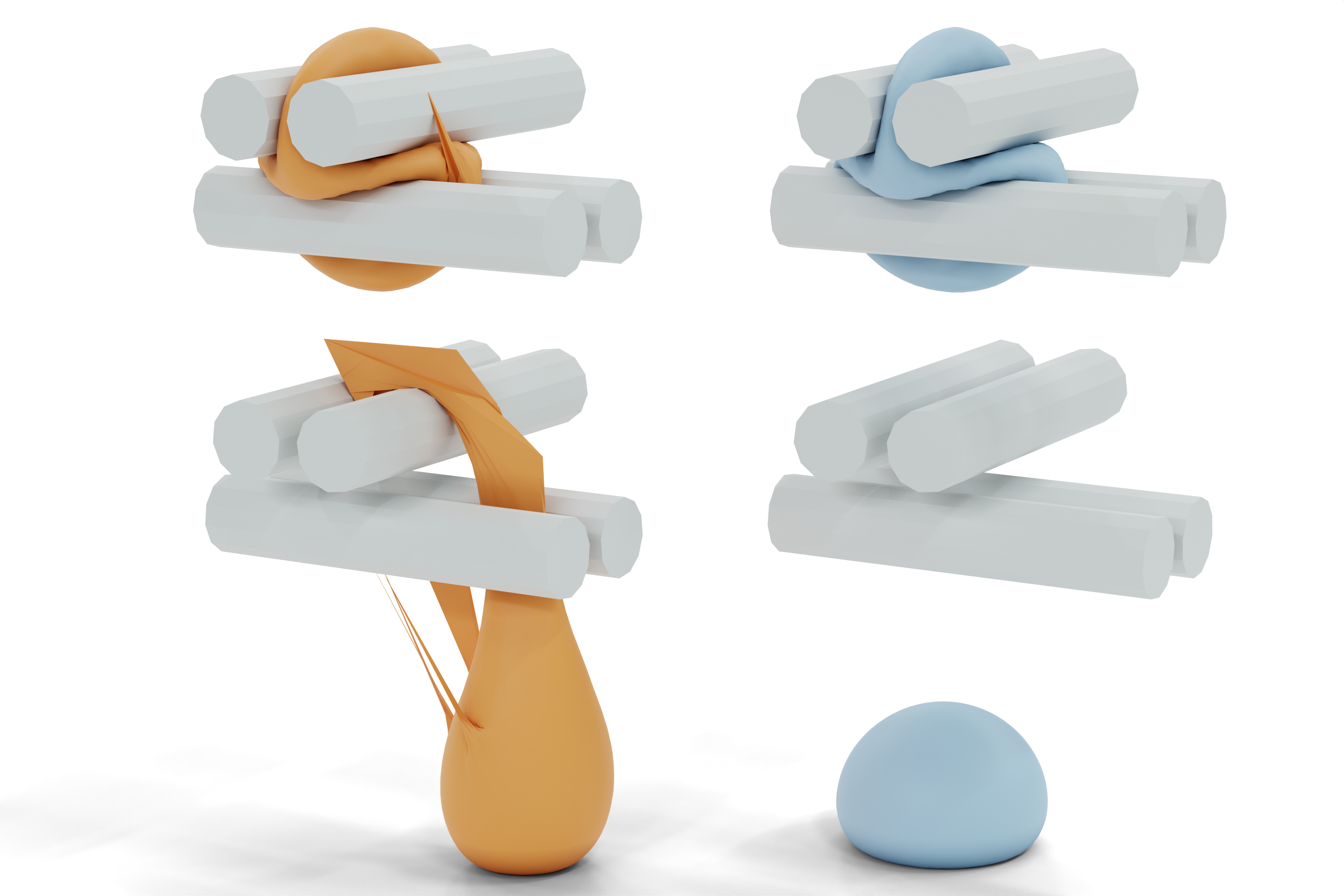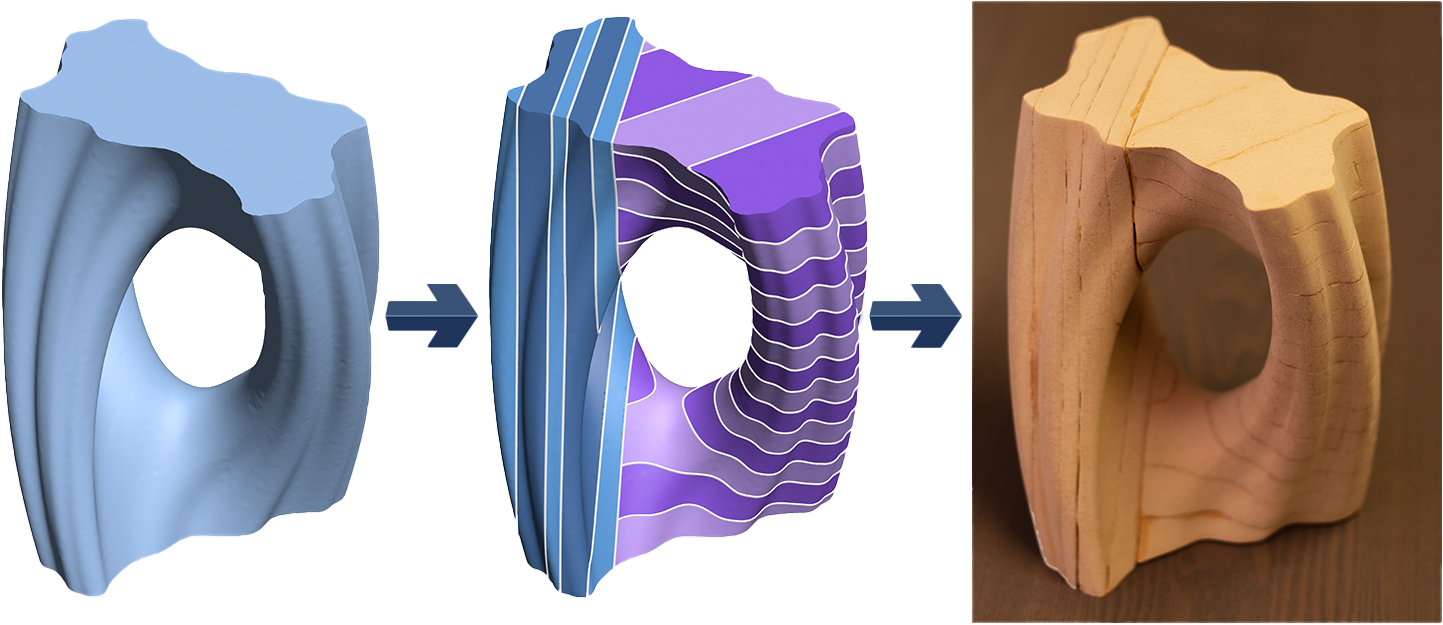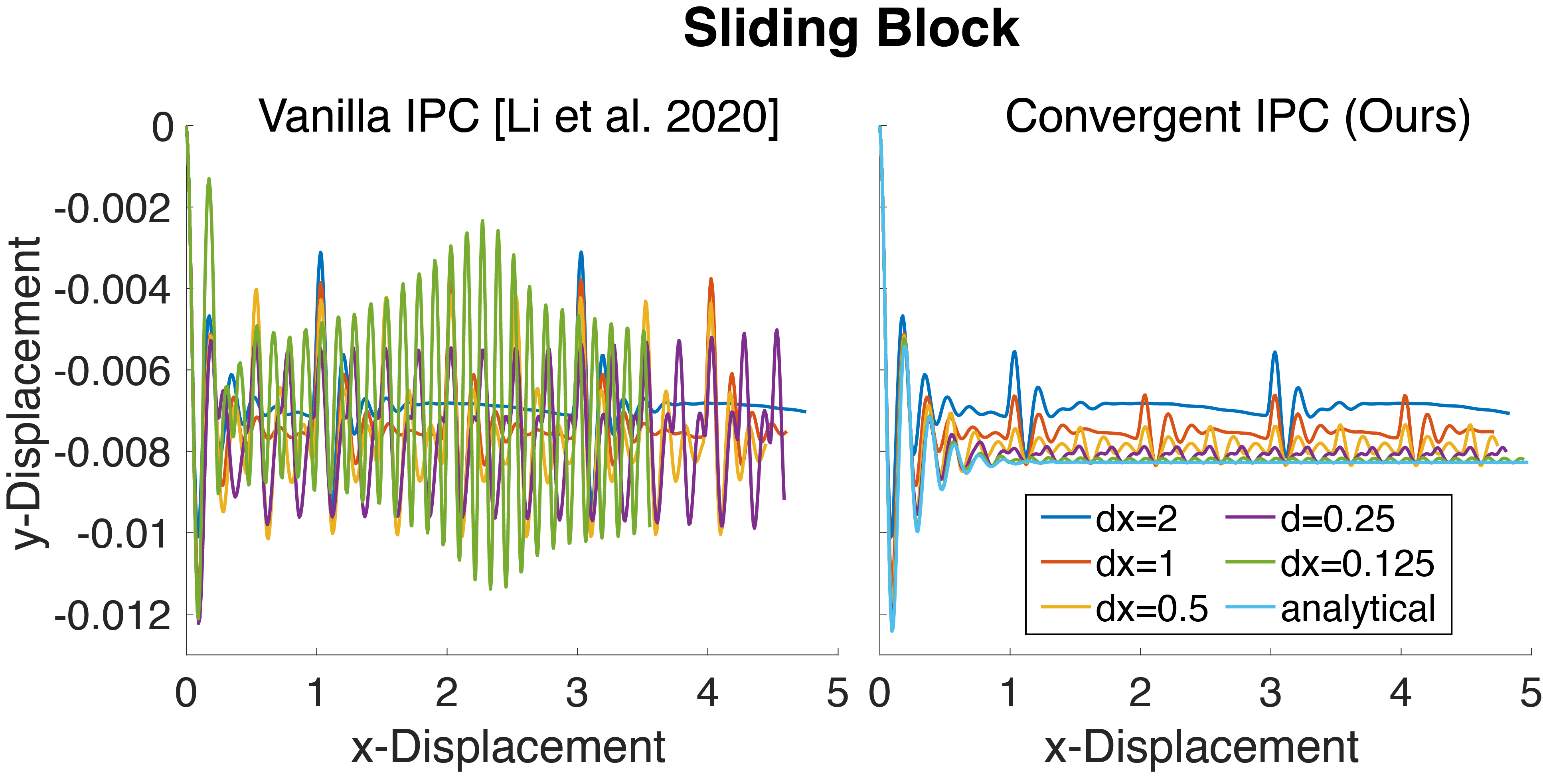Research Statement
Vision Physical simulation is a powerful tool for analysis and design, but current methods require tedious parameter tuning to get feasible results. This is impractical for tasks such as inverse design and reinforcement learning which require thousands of simulations. My research goal is to enable the use of simulation as a tool that requires minimal to no parameter tuning, effectively lowering the barrier of entry to using simulation.
Approach My research focuses on (open-source) accurate simulation methods with parameter-free robustness guarantees. Namely, we introduce the first set of algorithms for contact simulation that are unconditionally robust, require minimal parameter tuning, and are fully differentiable (capable of inverse design). Matching experimental data in one shot is finally an achievable goal.
Impact The widespread use of simulation amplifies the impact of my research. My contributions have pushed the boundaries of knowledge in multiple fields, including physically-based animation, automated design, robotics, and biomechanics. By pioneering unconditionally robust, accurate, and fully differentiable algorithms for contact simulation, I have democratized simulation, making it a more accessible and powerful tool for design and analysis.

